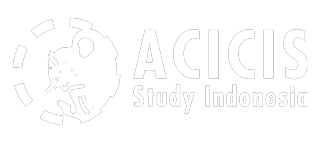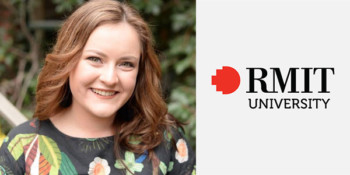Sienna Curnow was a participant in the 2021 Virtual Journalism Professional Practicum. Sienna is studying a Bachelor of Communications (Professional Communications) at RMIT University. She received a $3,000 New Colombo Plan Mobility Grant to support her participation in this program.
Q: Why did you decide to undertake the ACICIS program?
I have always wanted to study and/or work overseas to develop my cross-cultural communication skills. I was required as part of my degree to undertake a practical placement, but in the wake of the pandemic my hopes of undertaking an international internship were squashed. To see that ACICIS had adapted their Journalism Professional Practicum to an online format was very exciting as it would mean that I could still have the international opportunity I’d hoped for, albeit from the comfort of my home.
Q: Did you receive a New Colombo Plan Mobility Grant? Do you think the NCP is an important initiative?
Yes, I did receive a New Columbo Plan Mobility Grant. Without it, I wouldn’t have been able to undertake this program due to financial strain on my university student budget! The NCP is a very important initiative because it means that students such as me, who otherwise would not have the funding to support program participation, can participate in programs such as the JPP, making us better prepared to develop informed relationships with members of the Indo-Pacific region. This support will help promote cross-cultural education and ensure that it’s not only a small percentage of Australians able to access these kinds of opportunities for education.
Q: How have you found the academic components of this virtual program – i.e. the language classes/seminars?
The language classes hosted by Atma Jaya University were easy to follow and adaptive to the strengths and weaknesses of the students. I had very little Bahasa Indonesia skills and knowledge prior to beginning these classes and by the end of the 6 weeks, I was able to confidently communicate basic phrases and have some translation skills.
The seminars covered a diverse range of topics and ACICIS was always open and adaptive to student’s feedback on each one. Learning the ins and outs of media ownership and contemporary issues which Indonesia currently faces led to nuanced discussions of the roles in which our history, values, and culture impact journalism and storytelling today.
Q: What organisation did you intern with?
At The Jakarta Globe I was an intern reporter. In this role, I worked much like a freelance writer would, and sometimes would operate similar to a foreign correspondent. This involved receiving assignments from our mentors to write up, pitching our own articles, and completing copy editing tasks all to be submitted for publishing.
Q: How have you found the work culture (albeit online) of your host organisation? How is it different to work experience in Australia?
The communication styles in this work environment differed greatly from ours in Australia. In my work experience in Australia, we often have meetings to discuss tasks before beginning. At JG, we rarely met and instead were encouraged to take an assignment and add our own flare to it in the way we felt would make the story more engaging. Though jarring at first, I slowly adapted to this communication style and found myself becoming more confident in my work by the end of the placement.
Q: What are the main skills you have learnt during your virtual internship?
To be adaptive, flexible and patient. Waiting for assignments to be sent or for contacts to respond was initially very frustrating, but it helped me to take more care in my work and use my time more effectively. I learned that there was no expectation for me to simply sit and wait, but I could instead use the time to look further for more story opportunities, or to look deeper into the current task. This mindset will be applicable across any of my future work endeavours no matter where I go. Sometimes it’s not about powering through one task, it’s about approaching each task with patience, care and a desire to learn more.
Q: What did you find to be the most rewarding part of this virtual experience?
The opportunities to meet people from across Australia and Indonesia. Though the capacity for our relationships to grow was limited by the online format, there are still relationships defined by this shared experience.
Q: Were you able to learn about the Indonesian culture from this virtual program? If yes, how was this acheived?
Absolutely! I was able to learn so much about the history and cultural aspects of the archipelago, despite not being physically there. This was achieved through the virtual field trips, movie nights, and the language classes which informed our understanding.
Q: How will the virtual internship benefit or influence your career?
I am now far more capable in communicating with members of the Indo-Pacific region, making me a better storyteller to audiences outside of a Western context. No matter what area of the communications industry I enter, this skill will be applicable in a range of contexts.
Q: Would you recommend this virtual program to your friends?
Definitely!
Q: Favourite Indonesian word/phrase:
Saya suka menerima hadia-hadia.
Q: Describe your experience of this program in three words:
Inspiring, critical, and fascinating!


